Old Digital Literacy
Tuesdays 13:00 - 13:45, baumhaus.digital/odl
daniel@udk-berlin.de
Old Digital Literacy
Tuesdays 13:00 - 13:45, baumhaus.digital/odl
daniel@udk-berlin.de
Semester 0 :: Historical Context
Session 4 :: Between Renaissance and Age of Reason
Session 4 :: Between Renaissance and Age of Reason
- Repetitio :: Between Antiquity and Rennaissance
- Narratio :: Wheat and chessboard legend
- Questio :: What is an algorithm ?
- Lectio :: Between renaissance and Age of Reason
- Descartes & Pascal
- Leibniz
- Exercitio :: Binary counting.
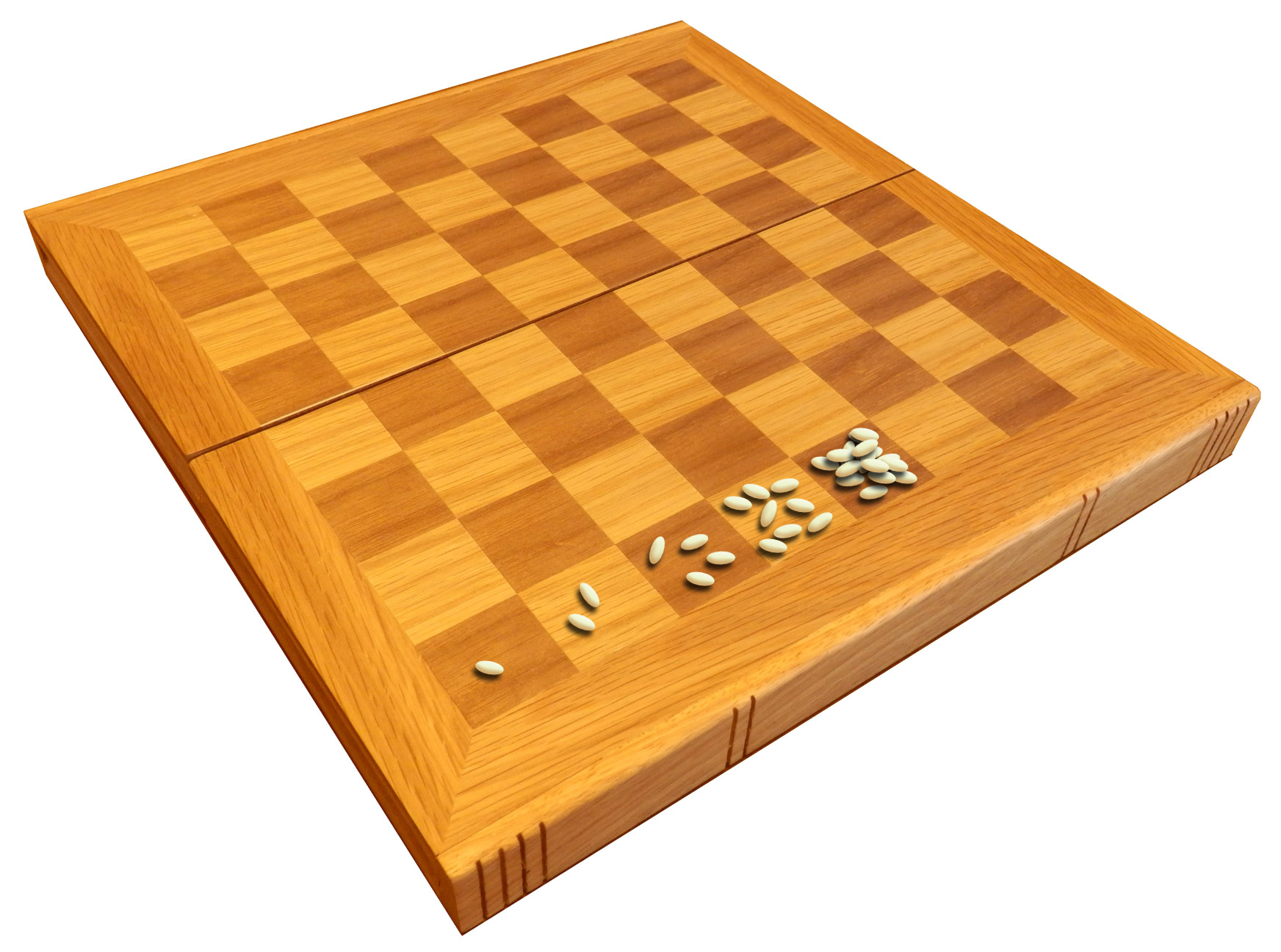 "Oh emperor, my wishes are simple. I only wish for this. Give me one grain of rice for the first square of the chessboard, two grains for the next square, four for the next, eight for the next and so on for all 64 squares, with each square having double the number of grains as the square before."
"Oh emperor, my wishes are simple. I only wish for this. Give me one grain of rice for the first square of the chessboard, two grains for the next square, four for the next, eight for the next and so on for all 64 squares, with each square having double the number of grains as the square before."
What is an algorithm ?
- algorithm (n.)
...
- a procedure for solving a mathematical problem in a finite number of steps that frequently involves repetition of an operation
- a step-by-step procedure for solving a problem or accomplishing some end
Name some examples of an algorithm.

- polymath
- at 23-years of age, his dreams pose him in front of a question: Quod vitae sectabor iter?
- establishement of scientific method (based on "doubitatio")
- "Cogito ergo sum", mind-body dualism
- cartesian coordinate system, analytic geometry ...
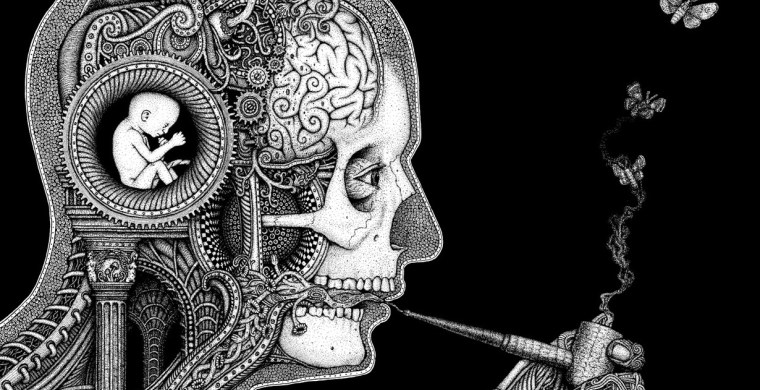 "I should like you to consider that these functions (including passion, memory, and imagination) follow from the mere arrangement of the machine’s organs every bit as naturally as the movements of a clock or other automaton follow from the arrangement of its counter-weights and wheels." (Descartes, Treatise on Man, p.108)
"I should like you to consider that these functions (including passion, memory, and imagination) follow from the mere arrangement of the machine’s organs every bit as naturally as the movements of a clock or other automaton follow from the arrangement of its counter-weights and wheels." (Descartes, Treatise on Man, p.108)
and much, much more...
- polymath
- in 19years of age started to build first mechanical calculators ("Pascalines")
- ground-breaking works in mathematics (Pascal's triangle), geometry (Pascal's theorem), physics (Pascal's law), theology (Pascal's wager)
- develops first public transport in the world
- dies young, last words: "Puisse Dieu ne jamais m'abandonner"
Death mask of Blaise Pascal
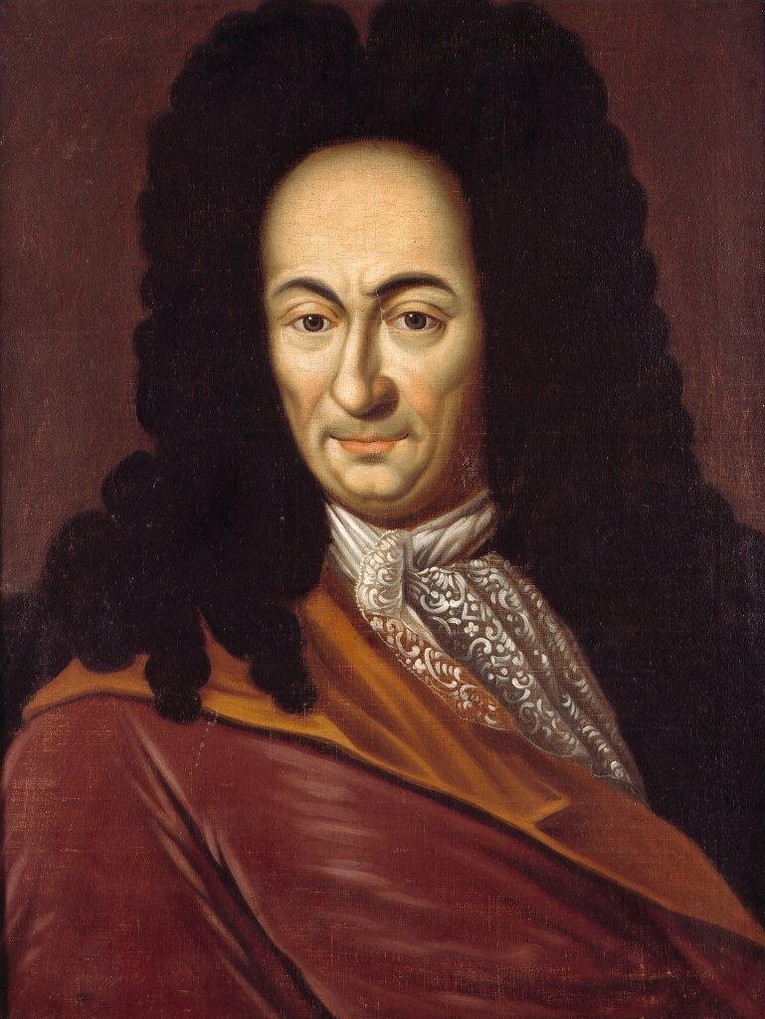
- one of the last big polymaths
- advanced disciplines of philosophy (monadology, theodicea, why is there something rather than nothing?), mathematics (probability theory, calculus), biology, medicine, geology, psychology, linguistics, computer science, philosophy, politics, law, ethics, theology, history, philology, library science
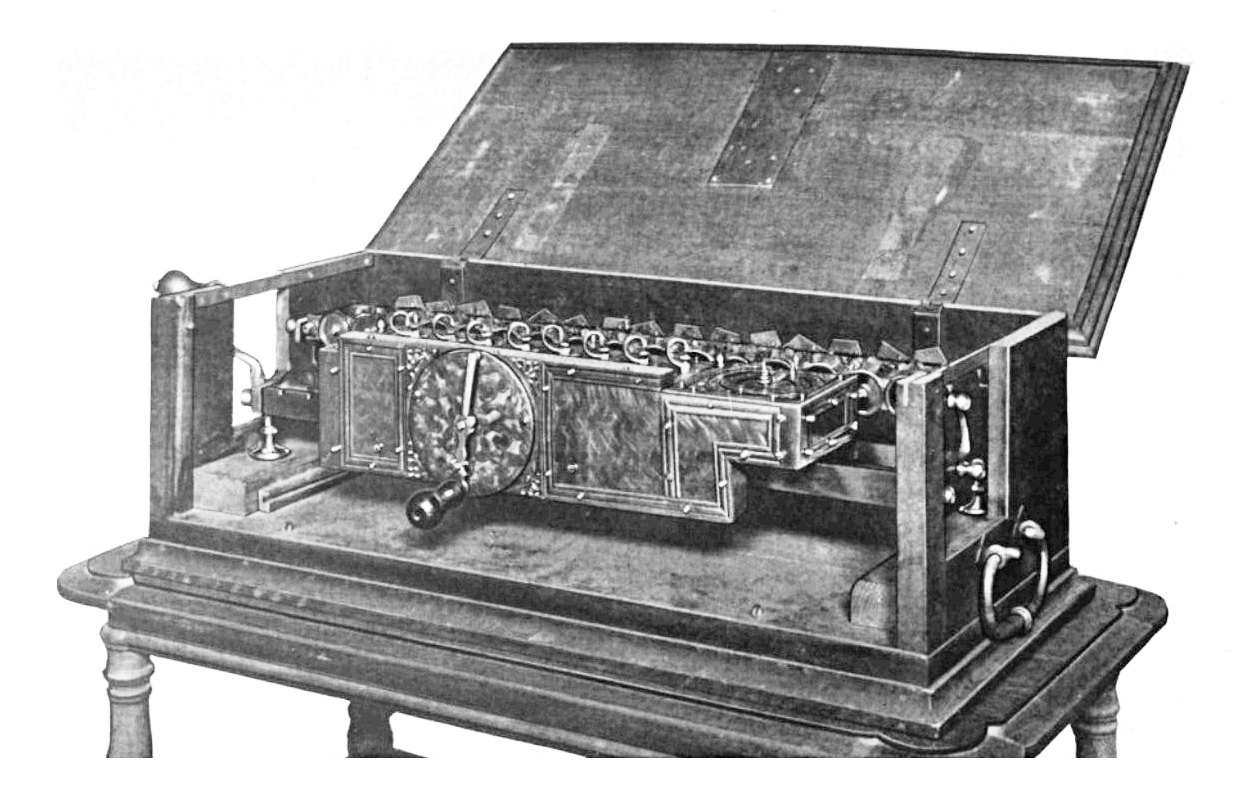 "... it is beneath the dignity of excellent men to waste their time in calculation when any peasant could do the work just as accurately with the aid of a machine." (G.W.L, 1673)
"... it is beneath the dignity of excellent men to waste their time in calculation when any peasant could do the work just as accurately with the aid of a machine." (G.W.L, 1673)
- presented to Royal Society on 1st February 1673
- could add, subtract, multiply and divide
- "the core component is a so-called "Leibniz wheel"
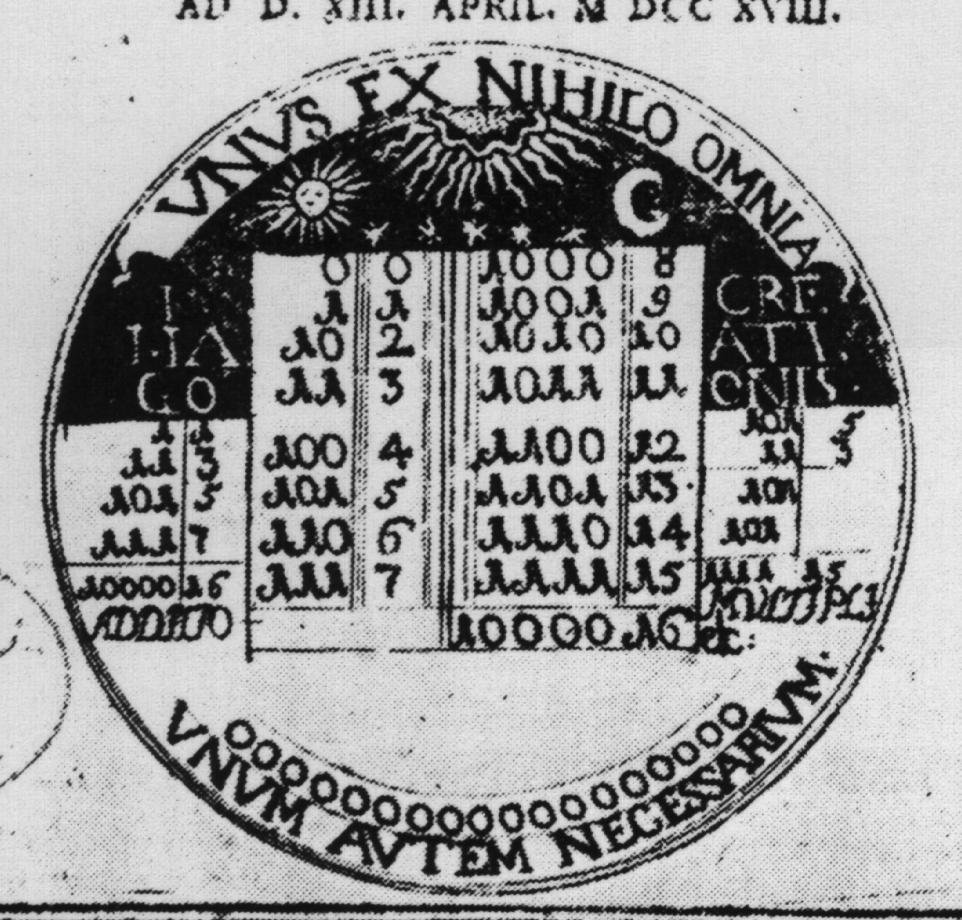 Please read :: http://baumhaus.digital/odl/Leibniz.pdf
Please read :: http://baumhaus.digital/odl/Leibniz.pdf
from letter of Leibniz to Duke of Braunschweig (1697)
http://baumhaus.digital/odl/lumieres
TO BE CONTINUED WITH
http://baumhaus.digital/odl/steampunk
TO BE CONTINUED WITH
http://baumhaus.digital/odl/steampunk